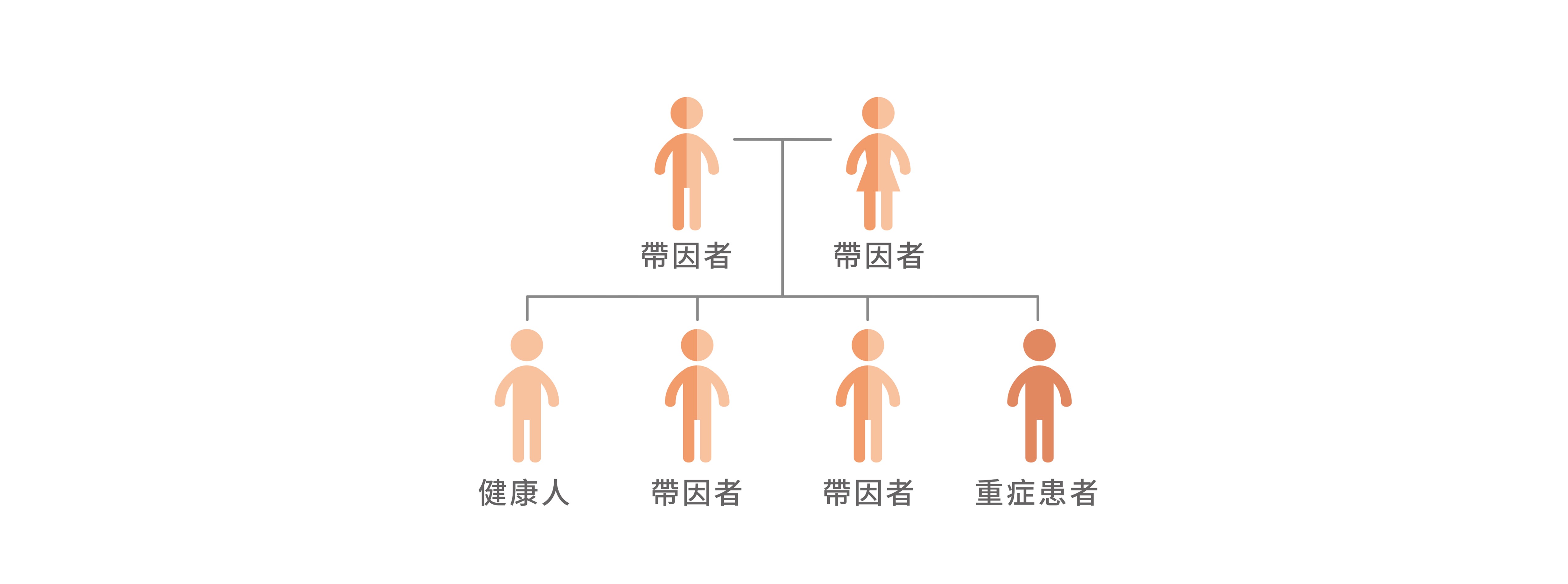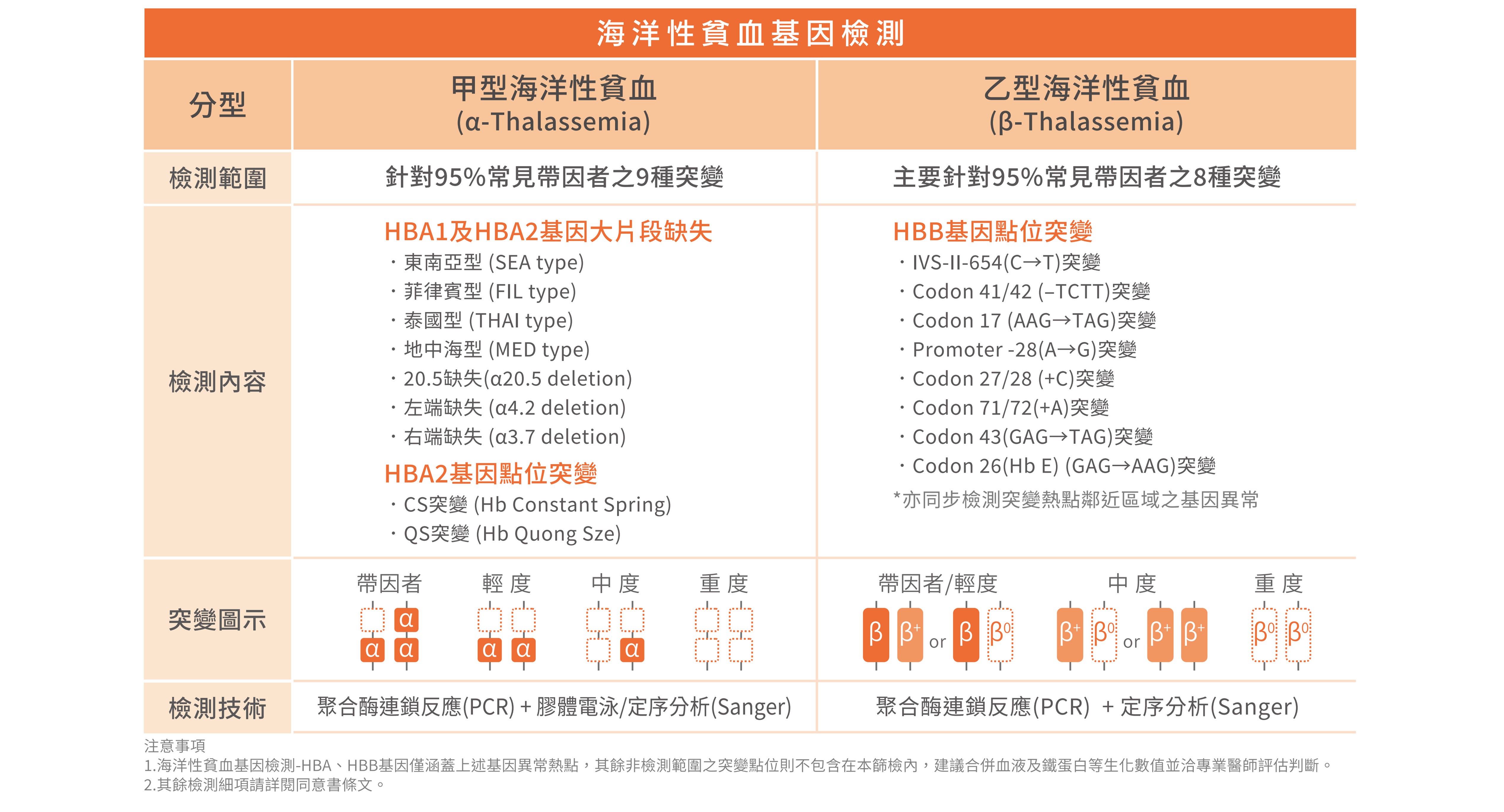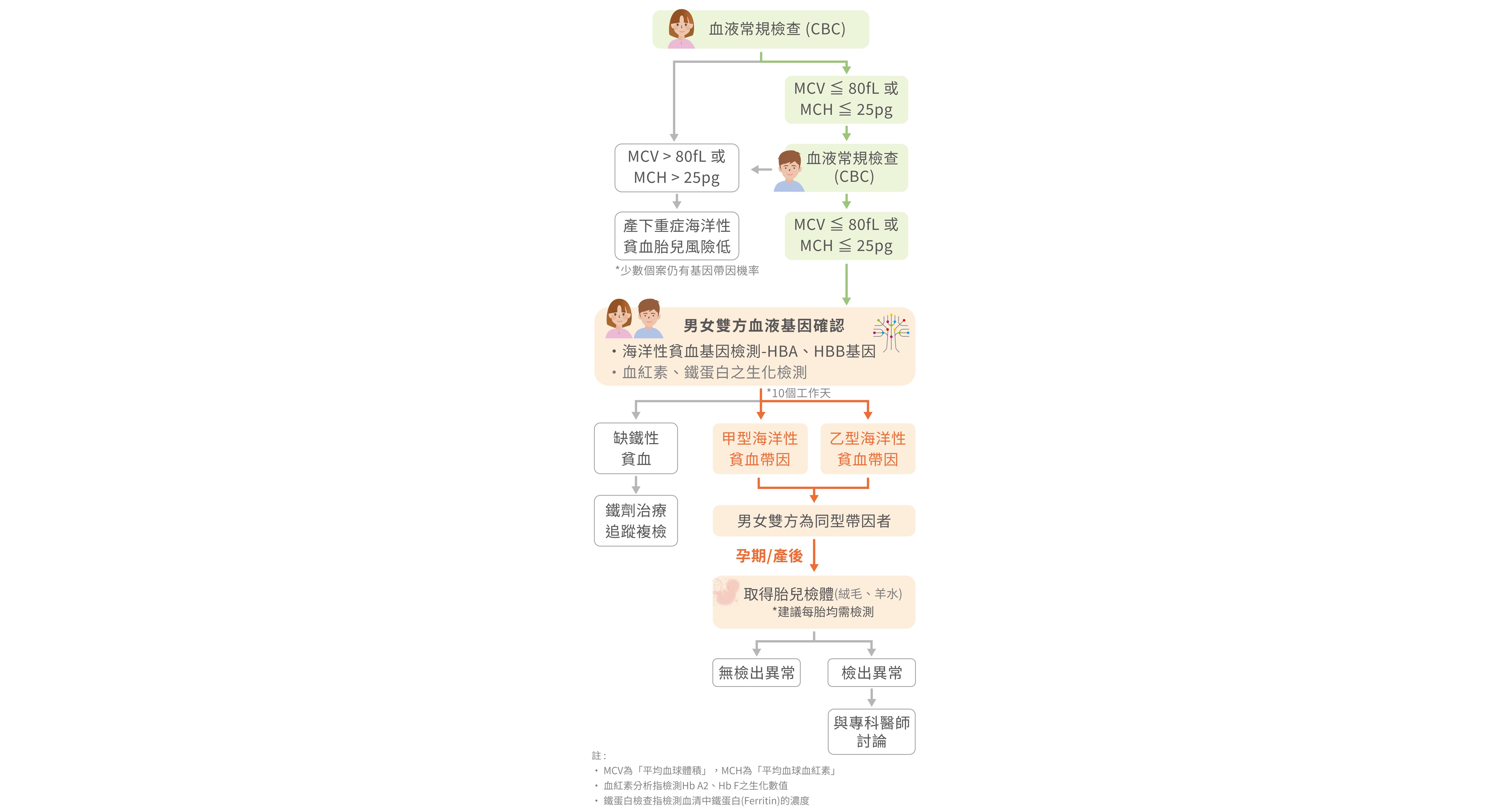海洋性貧血基因檢測-HBA、HBB基因
最常見單一基因遺傳疾病
服務介紹
■ 什麼是海洋性貧血?
海洋性貧血(Thalassemia),又稱地中海型貧血,全球約3%人口為帶因者,好發於地中海、非洲、東南亞及台灣等地,是一種隱性遺傳的血液疾病。 海洋性貧血的患者因基因突變導致無法製造足夠的血紅素,而引發嚴重貧血之臨床症狀。

■ 健康夫妻也可能生下重症寶寶
海洋性貧血是最常見的單基因遺傳疾病,帶因率為6%,其中4%為甲型,2%為乙型。 帶因者本身不會發病或僅輕微症狀,但若夫妻雙方為同型的帶因者, 每胎則有1/4機率產下重度海洋性貧血的胎兒。

檢測說明
■ 海洋性貧血基因分型
海洋性貧血依基因異常位置,分為甲型及乙型兩種,臨床則依疾病嚴重程度分為輕、中、重度三種。甲型致病因素為HBA基因大片段缺失為主,乙型則因HBB基因單點突變所致,由於兩種海洋性貧血多為獨立遺傳,所以須透過基因檢測確認夫妻是否為同型帶因者。

適用對象
✔ 具有海洋性貧血家族史之夫妻
✔ 初次篩檢出夫妻皆為同型海洋性貧血帶因者
✔ 曾生育過重度海洋性貧血患者的夫妻
✔ 初次篩檢出夫妻皆為同型海洋性貧血帶因者
✔ 曾生育過重度海洋性貧血患者的夫妻
檢測流程

慧智優勢

